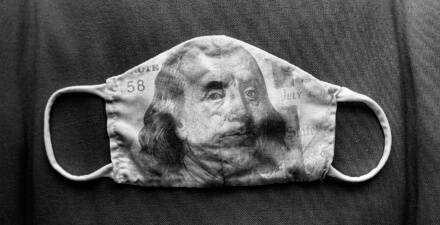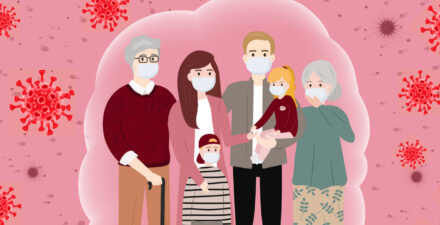Equitable Growth invests in research grants to explore the role of paid sick leave and paid family and medical leave amid the coronavirus recession

The Washington Center for Equitable Growth is announcing a trio of research grants to scholars exploring the impact of paid family and medical leave and paid sick leave policies amid the coronavirus pandemic and ensuing recession. These studies, conducted by faculty members at leading U.S. colleges and universities, will answer important research questions on paid leave’s role in protecting public health and economic security during the ongoing crisis.
But first, some background on Equitable Growth’s initiative in these arenas in light of the coronavirus recession: Equitable Growth is committed to advancing academic knowledge on paid family and medical leave, an issue that has been pushed to the forefront of policy debates in light of today’s serious public health crisis. As noted in a June analysis by Chantel Boyens at the Urban Institute, several states with their own paid family and medical leave systems experienced a sizable increase in paid leave claims at the start of the pandemic.
Shortly thereafter, the U.S. Congress passed the Families First Coronavirus Response Act. The FFCRA provided emergency paid leave to workers affected by sickness or child care responsibilities related to the coronavirus pandemic and COVID-19, the disease caused by the virus. Though only temporarily available, this emergency paid leave is the first ever federal paid leave guarantee in the United States.
Understanding how state paid leave programs and this federal emergency leave addressed the needs of workers and affected the functioning of the U.S. economy during this crisis is crucial as policymakers consider options for permanent paid family and medical leave guarantees in the future. We are pleased to announce investments in three research projects poised to shed light on how governmental paid leave programs addressed the current crisis.
In their project, “COVID-19 and Paid Leave: Assessing the Impact of the FFRCA” Kristen Smith of Dartmouth College, Tanya Byker of Middlebury College, and Elena Patel of the University of Utah will investigate how leave-taking was influenced by the passage of the Families First Coronavirus Response Act. The researchers will analyze the impact of the FFCRA on several employment and leave-taking outcomes, including labor force participation, usual hours worked, and reasons for work absences. Using data from the Current Population Survey, the researchers will examine how workers trade off the alternatives to leave-taking, including working while sick or separating from the labor force. The authors plan to compare leave-taking in states that either do or do not have state-based paid leave programs. This study will join an emerging body of literature studying the efficacy of the FFCRA.
Also investigating how paid leave can impact families’ finances and well-being in times of crisis is Jane Waldfogel of Columbia University in her project, “Access to Paid Leave during the COVID-19 Pandemic: Evidence from New York City.” This study will explore access, use, and outcomes associated with paid leave during the pandemic in New York City, using data from the New York City Longitudinal Study of Health and Wellbeing, also known as the Poverty Tracker. This survey follows representative samples of New York City residents, interviewing them every 3 months for up to 4 years and collecting a wealth of data on poverty, material hardship, health and well-being, and asset and debt levels.
Waldfogel will re-interview a sample of respondents who have already participated in 4 years of pre-pandemic surveys. In their first interview since the onset of the pandemic, the sample will be asked about their use of employer-, state-, or FFCRA-provided paid leave during the pandemic, as well as their experiences with poverty, hardship, and health and well-being since the emergence of the coronavirus and COVID-19.
Finally, Sari Kerr , Kristin Butcher, and Deniz Çivril of Wellesley College will examine how paid sick and medical leave affects public health and workers’ well-being in their project, “Did Paid Sick Leave and Family Medical Leave Ameliorate the Health and Economic Effects of the COVID-19 Pandemic?” This study plans to examine how state-guaranteed paid sick leave and state-guaranteed paid family and medical leave helped control the early spread of the coronavirus and COVID-19, and how paid sick leave ameliorated the economic distress caused by the pandemic.
In particular, the research team is interested in examining whether people in states with guaranteed paid sick leave were better able to adopt social distancing measures. Additionally, the team will examine if there are differences across states with and without paid leave systems in reported measures of illness, leave-taking, and economic and psychological distress associated with the pandemic.
The COVID-19 pandemic will end someday, but the lessons learned during this period will be informative to policymakers for years to come. Should another public health crisis emerge, policymakers will be better informed and better prepared to implement effective policy strategies to protect our public health, our families, and the broader U.S. economy.
More broadly, policymakers can draw on these lessons to construct a robust and equitable paid leave system for all workers with medical and caregiving needs to ensure the recovery from the coronavirus recession is strong and broad-based. Equitable Growth is proud to support this research and looks forward to working with this impressive slate of grantees to disseminate their findings and to continuing to build a bridge between those who make paid leave policy and those who can provide the evidence needed to do so in a way that supports an economy that works for all.







